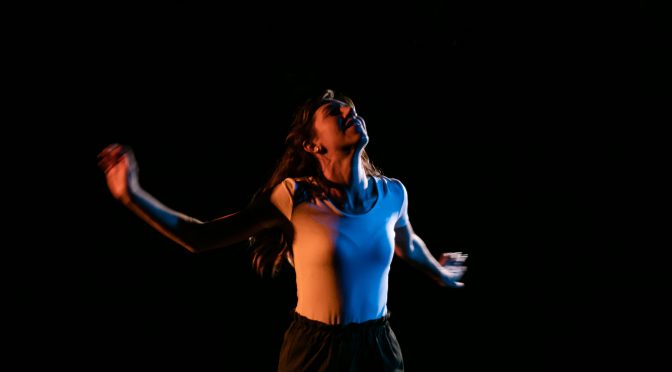Abi Zakarian’s play is truly exciting – this is theatre that believes it can change minds and lives. Bravo, Damsel Productions! But let’s not forget that facilitating this is a behind-the-scenes team of considerable talent. The care taken to develop characters, on and off-stage, the precise plotting and structure – this is how you write a play – and Hannah Hauer-King’s direction are all impeccable. The solo performer, Nancy Sullivan, astounds with her passion and physicality… but don’t forget the technical ability it takes to cry your eyes out and not lose a line. Applause, please, for the craft on offer here.
Zakarian’s skill is to see a big picture and make her play of one woman’s story so thoroughly contextualised. This is the Holy Grail for many a political writer, and notoriously difficult. But with control and attention, which Hauer-King consistently nurtures, we understand that the title is inspired by the fabric of society. The structure of female lives, shaped and prepared for abuse, are the weft and warp we see woven before us in a depiction of systemic misogyny. To crib from Rozsika Parker, Zakarian creates a subversive tapestry for our consideration.
We follow Leah from her courtship through to marriage and then to a court case where she tries to prosecute her husband’s friend after he rapes her. But this final traumatic scene, depressing in its predictable futility, is presaged with drama and intelligence. The sickening moments of Leah in the witness box – when she comes into the audience itself – are a culmination of how she has been treated all along. There’s an uncomfortable link to the indebtedness her own family and mother-in-law expect her to feel at having found an eligible bachelor. And there’s a traumatic wedding night with her new husband that is very difficult to watch. The journey is handled adroitly. After presenting a gorgeously bubbly and endearing character at first, Sullivan deepens Leah’s appeal with great observations and carefully balanced humour. Yet voiceovers alert us that something has gone wrong, and tension mounts ferociously.
Rips, tears and bodily fluids stain the perfect life Leah aims for, using dresses she wears on key occasions as metaphors, building a sense of menace and highlighting that, for women, presentation becomes a constant burden. As Leah’s life unravels, how the pressures and punishments of expectations and prejudice enwrap her become literal; her clothing is used as evidence in court. Fabric reports on the state of things with magnificent insight. But there is, thankfully, an optimism in the ability to unpick and expose, as the talented women who have made this play have done. With threads loosened, there is the chance to breath and await what will be woven anew.
Until 22 September 2018
Photo by The Other Richard

